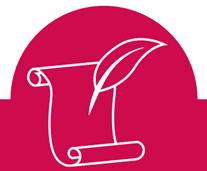History

|
Intent |
|
Our History Curriculum aims to inspire children to be curious and creative thinkers who develop complex knowledge of local and national history and the history of the wider world. We want children to develop the confidence to think critically, ask questions and be able to explain and analyse historical evidence. We aim to build an awareness of significant events and individuals in global, British, and local history and recognise how things have changed over time. History will support children to appreciate the complexity of people’s lives, the diversity of societies and the relationships between different groups. Exploring History allows children to appreciate the many reasons why people may behave in the way they do, support children to develop empathy for others while providing an opportunity to learn from mankind’s mistakes. Our History Curriculum aims to support children in building their understanding of chronology in each year group, making connections over periods of time and developing a chronologically secure knowledge of History. We hope to develop pupils’ understanding of how historians study the past and construct accounts and the skills to carry out their own historical enquiries. In order to prepare pupils for their future learning in History, we introduce them to key substantive concepts including power, invasion, settlement and migration, empire, civilisation, religion, trade, achievements of humankind, society and culture. |
|
Implementation |
|
To meet the aims of the National Curriculum for History and in response to the Ofsted research into the subject, we have identified the following key strands: - • Substantive Concepts • Disciplinary Concepts • Historical Enquiry • Chronological Awareness Our curriculum emphasises the importance of chronological knowledge across all strands to support the development of substantive concepts, historical skills, and historical enquiry. These strands are interwoven through all our history teaching to create engaging and enriching learning experiences which allow children to investigate like a Historian would. Each unit of learning allows children to explore the place in time of the period they are learning and make connections and comparisons in other parts of the world. In EYFS, children explore the concept of history by reflecting on key experiences from their own past, helping them understand that they each have their own histories. Then, they engage in activities to compare and contrast characters from stories, including historical figures, deepening their understanding of how individual lives fit into broader historical narratives Children will develop their awareness of the past in Key Stage 1 and will know where people and event fit chronologically. This will support children in building a ‘mental timeline’ they can refer to throughout their learning in Key Stage 2 and be able to identify connections, contrasts, and trends over time. There are two EYFS units focused on each of the history-related Development matters statements. These units consist of a mixture of adult-led and child-initiated activities which can be selected by the teacher to fit in with Reception class themes or topics. In Key stage 1 and 2, units are organised around an enquiry-based question and children are encouraged to follow the enquiry cycle (Question, Investigate, Interpret, Evaluate and conclude, Communicate) when answering historical questions. Children will develop their understanding of the following key concepts: - • Change and continuity • Cause and consequence • Similarities and differences • Historical significance • Historical interpretations • Sources of evidence These concepts will be encountered in different contexts during a study of local, British and world history. Children will have a varied opportunity to learn how historians use these skills and will confidently develop and use their own historical skill set. Substantive concepts such as power, trade, invasion, and settlement are clearly identified in lower Key Stage 2 and revisited in Upper Key Stage 2 allowing knowledge of these key concepts to be deepened. These concepts are revisited in different contexts meaning that children begin to develop an understanding of these abstract themes which are crucial to their future historical learning. Our curriculum follows a spiral model where previous concepts, skills and knowledge are returned to and built upon. Lessons are engaging and hands on allowing children to experience the different aspects of an historical enquiry. Children will participate in activities involving substantive and disciplinary concepts, developing their knowledge, and understanding of British role in the past and that of the wider world. Children will develop their knowledge of concepts and chronology as well as in-depth knowledge of the context being studied. Strong subject knowledge is vital to be able to deliver a high-quality History Curriculum. A History subject handbook is available to all staff, which outlines essential information to support teachers in delivering high quality lessons. Additionally, for each unit ‘Teacher subject knowledge’ videos are available to help clarify understanding. Lessons are timetabled in unit blocks to ensure that learning is closely connected and that children can immerse themselves in their geographical learning and enquiry. |
|
Impact |
|
The impact of our history curriculum is constantly monitored through assessment, learning walks and pupil discussions. Children will leave school equipped with a range of skills to enable them to succeed in their secondary education. They will be enquiring learners who ask questions can make suggestions about where to find the evidence to answer the question. They will be critical thinkers who are able to make informed and balance judgement based upon evidence and knowledge of the past. Overall, we intend that the impact of our history curriculum is that children will: -
|
